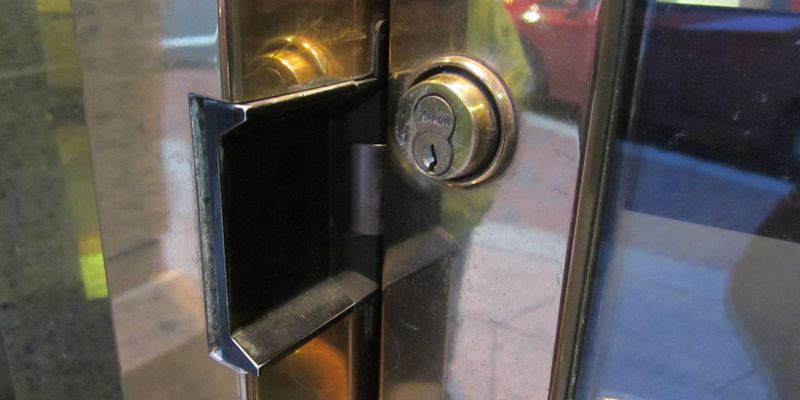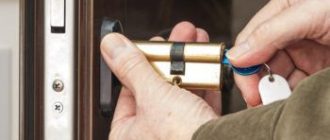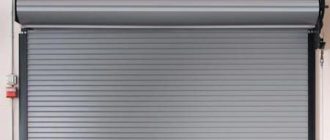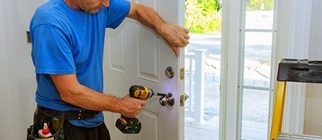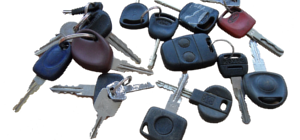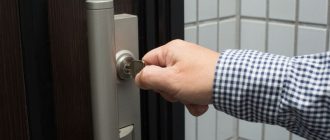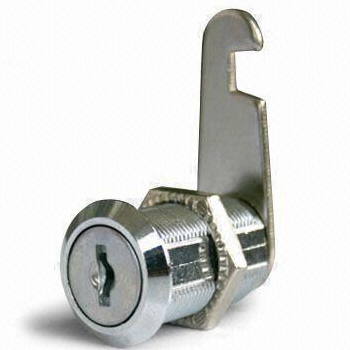
The Most Common Types of Commercial Locks
If you own a business, security should be one of your top priorities. The first line of defense against unauthorized access is installing high-quality locks. Commercial locks come in various types, each designed to suit different security needs. In this article, we will explore the most common types of locks used in commercial settings and how they can help secure your business.
The Most Common Types of Commercial Locks
In today’s fast-paced and increasingly digital world, the security of your business is more important than ever. One vital aspect of business security is the type of locks you choose to safeguard your commercial property.
When it comes to commercial locks, there are a few types that are commonly used due to their effectiveness and reliability. These locks provide the necessary protection against break-ins and unauthorized access to your business premises.
1. Deadbolt Locks: Deadbolt locks are the most common and widely used type of commercial locks. They consist of a solid metal bolt that is embedded into the door frame and can only be moved by rotating the key. Deadbolt locks are highly resistant to forced entry and are often installed on exterior doors.
2. Electronic Locks: With the advancement of technology, electronic locks have become increasingly popular in commercial settings. These locks use electronic systems such as keypads, card readers, or biometric scanners to provide access. Electronic locks offer enhanced security features and can be easily reprogrammed or deactivated if necessary.
3. High-Security Locks: For businesses requiring a higher level of security, high-security locks are an excellent choice. These locks are designed to resist picking, drilling, and tampering. They often incorporate advanced technology and intricate keyways to provide maximum protection against break-ins.
4. Keyless Entry Locks: Keyless entry locks eliminate the need for traditional keys and provide convenient access to authorized personnel. These locks use methods such as keypads, proximity cards, or biometric scans to grant entry. Keyless entry locks are particularly popular in office buildings and commercial facilities with a high volume of foot traffic.
5. Mortise Locks: Mortise locks are a reliable and durable option for commercial properties. They have a strong and robust construction, making them resistant to forced entry. Mortise locks feature a deadbolt and latch mechanism, offering enhanced security.
By choosing the most common types of commercial locks, you can ensure the safety and security of your business. Remember to consult with a professional locksmith to assess your specific needs and determine the best locks for your commercial property.
Cylinder Locks
Cylinder locks are one of the most common types of commercial locks used in businesses. They are highly secure and provide reliable protection for your business premises.
These locks consist of a cylinder housing that contains the locking mechanism. The cylinder can be made of various materials such as brass or steel, ensuring durability and resistance to tampering.
There are different types of cylinder locks available, including:
| Pin Tumbler | This type of cylinder lock uses pins of different lengths to prevent the lock from turning without the correct key. It provides a high level of security and is commonly used in commercial buildings. |
| Wafer Tumbler | Wafer tumbler cylinder locks use flat wafers instead of pins. The wafers align with the grooves in the key, allowing it to turn and unlock the door. This type of lock is commonly found in file cabinets and other commercial applications. |
| Dimple | Dimple cylinder locks contain dimples instead of pins or wafers. The dimples align with the key’s cuts, allowing it to rotate and open the lock. These locks provide a high level of security and are often used in commercial settings. |
When choosing a cylinder lock for your business, consider factors such as security, durability, and compatibility with your existing security systems. It’s also essential to consult with a professional locksmith who can recommend the best lock for your specific needs.
By investing in high-quality cylinder locks, you can ensure the security of your commercial property and protect your business assets and confidential information.
Mortise Locks
Mortise locks are one of the most common types of locks used in commercial buildings. They are known for their high level of security and durability.
These locks have a rectangular box, called a mortise, that is cut into the edge of the door. The lock mechanism, which consists of a bolt and a latch, is installed inside the mortise. When the lock is engaged, the bolt extends into the strike plate on the door frame, securing the door.
Mortise locks come in various styles and configurations to meet different security needs. They can be used for both exterior and interior doors, providing reliable protection for your business.
Some of the advantages of mortise locks include:
- Strong and durable construction
- Difficult to pick or tamper with
- Can be easily rekeyed if needed
- Available in a variety of finishes
- Enhanced security features
Whether you have a small office or a large commercial building, mortise locks are an excellent choice for securing your business.
Deadbolt Locks
Deadbolt locks are one of the most common types of commercial locks used to secure businesses. They are highly reliable and provide an extra level of security compared to other types of locks.
Deadbolt locks consist of a solid metal bolt that extends into the door frame when the lock is engaged. This makes it extremely difficult for burglars to force the door open, as the bolt is securely anchored in place.
There are two main types of deadbolt locks: single cylinder and double cylinder.
- Single cylinder deadbolt locks: These locks have a key cylinder on the outside and a thumbturn on the inside. They are the most common type of deadbolt lock and are suitable for most commercial applications.
- Double cylinder deadbolt locks: These locks have a key cylinder on both the outside and the inside. They provide an added layer of security, as they require a key to be used both to lock and unlock the door from the inside and outside. Double cylinder deadbolts are often used in locations where there is a risk of unauthorized access through a nearby window, as they prevent the intruder from simply reaching in and unlocking the door.
Deadbolt locks are available in a variety of finishes and styles to match the aesthetics of any commercial building. They are also compatible with most standard doors, making them a versatile option for securing your business.
Investing in high-quality deadbolt locks for your commercial property is a smart choice to ensure the safety and security of your business.
Combination Locks
Combination locks are one of the most common types of commercial locks used to secure businesses. They offer a high level of security and convenience, as they do not require a key to open. Instead, they use a series of numbers or symbols to unlock the mechanism.
These locks are widely used in various commercial settings, such as offices, schools, gyms, and storage units. They provide a reliable and easily manageable solution for controlling access to restricted areas. Combination locks are often preferred in situations where multiple people need access and keys may be lost or stolen.
One of the key advantages of combination locks is their customization options. Users can set their own unique combination, allowing for a higher level of security. This eliminates the need for duplicate keys and the risk of unauthorized duplication.
Commercial combination locks are typically made from durable materials such as stainless steel or solid brass, ensuring their longevity and resistance to tampering. They are designed to withstand heavy use and can withstand harsh weather conditions.
Combination locks are also available in a variety of styles and sizes to suit different needs. Some locks are designed for indoor use, while others are weather-resistant and suitable for outdoor applications. They can be installed on doors, lockers, cabinets, safes, and more.
Overall, combination locks offer a reliable and convenient solution for securing commercial properties. Their versatility, robustness, and customizable features make them a popular choice among business owners and facility managers.
Keyless Entry Locks
Keyless entry locks have become one of the most popular types of commercial locks in recent years. These locks eliminate the need for traditional keys, offering convenience and enhanced security for businesses.
By using digital keypads, keyless entry locks allow authorized individuals to enter a building or specific areas without the need for a physical key. This eliminates the risk of lost or stolen keys and the need for time-consuming rekeying.
Keyless entry locks come in various forms, including:
- Keypad locks: These locks require users to enter a unique code on a keypad to gain access.
- Biometric locks: These locks use fingerprint, retina, or facial recognition technology to identify authorized users.
- Proximity card locks: These locks use radio frequency identification (RFID) technology to grant access to individuals with a valid proximity card.
With keyless entry locks, businesses can easily manage access permissions by adding or revoking codes or cards as needed. This provides a level of control and flexibility that traditional locks cannot match.
Investing in keyless entry locks is a smart choice for businesses looking to enhance security and streamline access management. Contact us today to learn more about our wide range of keyless entry lock options!
Electric Strikes
Electric strikes are one of the most common types of commercial locks used to secure businesses. They are installed on the door frame and provide an additional layer of security by allowing controlled access through the use of an electronic mechanism.
Electric strikes work by interacting with an access control system, such as key cards or keypads. When a valid credential is presented, the electric strike releases the door latch, allowing entry. This makes them a popular choice for businesses that require secure entry and exit points.
There are several types of electric strikes available for commercial use, including:
| Fail-Secure Electric Strikes | Locks the door in the event of a power failure, ensuring that the door remains securely closed. |
| Fail-Safe Electric Strikes | Unlocks the door in the event of a power failure, allowing for easy exit from the building. |
| Delayed Electric Strikes | Introduces a delay between presenting a valid credential and releasing the door latch, providing an extra level of security. |
| Heavy-Duty Electric Strikes | Designed for high traffic areas or doors that require extra strength and durability. |
Electric strikes offer businesses a convenient and secure way to control access to their premises. With various types available, they can be customized to meet the specific security needs of any commercial establishment.
Smart Locks
Smart locks are a modern and innovative type of commercial locks that offer enhanced security for businesses. These advanced locks utilize cutting-edge technology to provide convenient access control and monitoring features.
There are several common types of smart locks available for commercial use:
| Biometric Locks | These locks use unique biological characteristics, such as fingerprints or iris scans, for identification and authentication purposes. They provide a high level of security and are often used in high-security commercial establishments. |
| Bluetooth Locks | These locks can be unlocked or locked using a smartphone or a Bluetooth-enabled device. They offer convenience and flexibility, allowing authorized individuals to control access remotely. |
| Keypad Locks | Keypad locks require the entry of a numeric code to gain access. They are easy to use and can be programmed with multiple codes, making them suitable for businesses with a large number of authorized individuals. |
| Proximity Locks | Proximity locks use RFID technology to enable access. Users only need to wave a card or key fob near the lock to unlock it. These locks are commonly used in offices and hotels. |
| Wireless Locks | Wireless locks offer remote control and monitoring capabilities through a network connection. They can be integrated with other security systems, providing advanced security features for commercial establishments. |
Smart locks provide businesses with convenient and secure access control solutions. With their advanced features and modern technology, they are becoming increasingly popular in commercial settings.
Magnetic Locks
Magnetic locks are one of the most common types of commercial locks used to secure businesses. These locks utilize electromagnetism to provide a high level of security and convenience.
The operation of magnetic locks is based on the principle of magnetic attraction. When an electric current is applied, it creates a magnetic field, which attracts the armature plate and locks it securely to the magnet housing. This mechanism ensures that the door remains locked until the current is interrupted or released.
Magnetic locks offer several advantages for commercial applications. They provide a fast and reliable locking mechanism, allowing authorized individuals to enter and exit quickly without compromising security. The strength of the magnetic force can be adjusted, allowing for compatibility with different types of doors and security requirements.
Additionally, magnetic locks are highly resistant to tampering and forced entry. Unlike traditional mechanical locks, which can be picked or manipulated, magnetic locks rely on the power of magnetism, making them more challenging to bypass.
Furthermore, magnetic locks are suitable for a wide range of commercial establishments, including offices, retail stores, warehouses, and healthcare facilities. They can be integrated with access control systems, allowing businesses to manage and monitor entry and exit activities effectively.
Overall, magnetic locks are a reliable and secure choice for commercial applications. Their advanced technology and versatility make them an ideal option for businesses seeking enhanced security measures.
| Fast and reliable locking mechanism |
| High resistance to tampering and forced entry |
| Compatibility with different types of doors |
| Integration with access control systems |
Biometric Locks
Biometric locks are one of the most advanced types of locks available for commercial use. These locks use unique physical characteristics to grant access to authorized individuals. Biometric locks can scan fingerprints, iris patterns, or even recognize facial features.
Biometric locks are incredibly secure as they rely on an individual’s unique attributes, making it virtually impossible for unauthorized individuals to gain access. They provide an extra layer of security and are commonly used in high-security environments such as government buildings, research facilities, and data centers.
By using biometric locks, businesses can protect their valuable assets and sensitive information. These locks eliminate the risk of lost or stolen keys, as individuals can only gain access with their unique biological features. Companies can also easily track and monitor entry and exit times of employees, enhancing overall security and accountability.
Investing in biometric locks for your business is a wise decision to ensure the highest level of security and protection for your premises and valuable assets.
Panic Bar Locks
Panic Bar Locks are one of the most common types of commercial locks used in businesses today. They are designed to provide quick and easy exit during emergencies.
Also known as exit devices or crash bars, panic bar locks are installed on doors to ensure safe evacuation in case of fires, natural disasters, or other emergency situations. They are typically found in public buildings such as hospitals, schools, offices, and shopping centers.
Panic bar locks function by allowing the door to be easily pushed open from the inside when pressure is applied. This makes them ideal for crowded areas where quick and efficient exit is crucial.
There are several types of panic bar locks available in the market, including:
| Rim Exit Devices | These panic bar locks are installed on the surface of the door, making them one of the easiest types to install. They are commonly used on single doors or narrow stile glass doors. |
| Mortise Exit Devices | These panic bar locks are installed inside the door, making them more secure and tamper-resistant. They are commonly used on heavy-duty doors or doors with high-security requirements. |
| Von Duprin Exit Devices |

